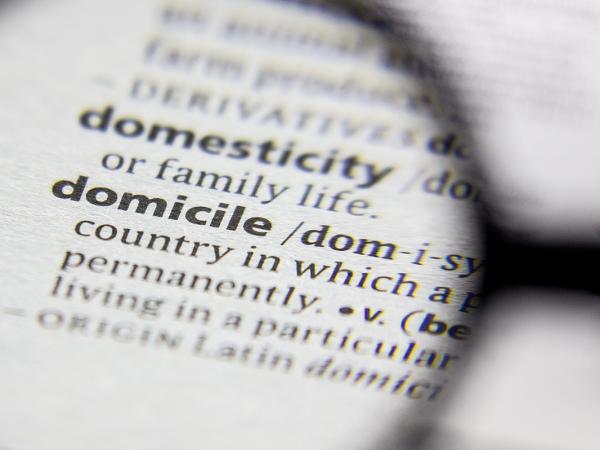Residence and domicile
Your tax residence status and domicile status affect the extent to which you are liable to tax in the UK.
Please note: At the Spring Budget 2024, the government announced significant changes for UK-resident taxpayers to the taxation of non-UK income and gains arising from April 2025. The taxpayer’s domicile and the remittance of such income and gains to the UK will no longer be relevant in determining the UK income tax liability. Instead, taxpayers will be able to exclude such income and gains from UK tax for a limited period, where certain conditions are met. The information below sets out the position for the 2024/25 tax year.

Content on this page:
Overview
Tax residence is a short-term concept and is determined for each tax year separately, broadly reflecting where you reside.
Domicile is more long-term and refers to the country which you consider to be your permanent ‘home’ over the course of your life.
The two are usually considered independently, though in some cases if you are long-term resident in the UK then you can be deemed UK domiciled.
The following table summarises the income tax and capital gains tax impact of your residence and domicile status for tax years up to and including 2024/25:
| Resident | Non-resident | |
| UK domiciled | Taxable on worldwide income and gains (known as the arising basis) | Taxable on UK-sourced income and gains on certain UK assets. |
| Non-UK domiciled | Taxable on worldwide income and gains unless the remittance basis applies, in which case unremitted foreign income and gains are excluded from UK tax. |
This is the position under UK domestic law. There may be different treatment for particular types of income and gains under the terms of a relevant double taxation agreement.
Your domicile status is also relevant for inheritance tax purposes.
Regardless of your residence or domicile status, income which arises in the UK is generally taxable in the UK. For example, migrant workers are subject to UK tax on their UK earnings, whether or not they are resident in the UK. So, if you are in the UK temporarily and you only have UK income while you are here, it may not matter much whether or not you are tax resident: all of your income will be subject to UK tax in any case.
Your residence status and, for tax years up to and including 2024/25, domicile status are therefore most relevant for determining the extent to which any foreign (that is, non-UK) income, and certain gains, are taxed in the UK.
For tax years up to and including 2024/25, your domicile status is normally only relevant if you are resident here; if you are non-resident then your foreign income and gains are out of scope of UK tax.
Most people who were born in the UK and have lived in the UK most or all their lives will be resident and domiciled in the UK.
However, most people who come to the UK to live here for at least six months but do not intend to remain here permanently, or otherwise retain ties to their home country, will usually become resident here but retain a non-UK domicile. Alternatively, if you only come to the UK for a short period, or do not spend very much time in the UK, then you may not become resident here at all.
Tax allowances
Your residence status may also affect your entitlement to certain UK income tax allowances, including the personal allowance. This can therefore affect the amount of UK tax you owe.
If you are entitled to the UK personal allowance, this is not reduced where you are only in the UK for part of the tax year. Therefore, for the tax year of arrival and the tax year of departure, where you are generally only taxable in the UK for part of the year, you may be entitled to a tax refund (see, for example, UK tax refunds for people leaving the UK or living overseas). This may be the case if you have not received the benefit of the full personal allowance through your pay as you earn (PAYE) tax code applied to your employment income.
However, if you claim the remittance basis (and it does not apply automatically) for tax years up to and including 2024/25, you will forfeit the UK personal allowance, as well as the capital gains tax annual exempt amount.
More information
You can find more information on residence and domicile in HMRC’s Residence, Domicile and Remittance basis guidance (RDR1).



